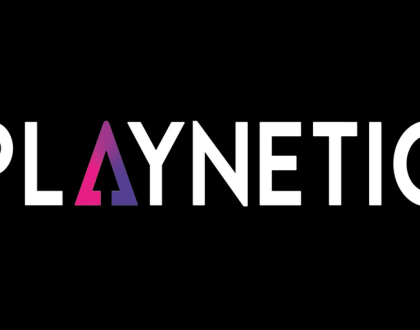Payment Agents and Financial Security Risks

You may have heard of payment agents becoming increasingly popular as intermediaries for financial transactions. While they offer convenience and accessibility, I often wonder whether their presence in my financial dealings compromises my security. In this blog post, I will explore the risks associated with using payment agents and help you understand how to protect your sensitive information while navigating this evolving financial landscape.
Understanding Payment Agents
For many individuals and businesses today, payment agents are imperative facilitators in digital transactions. They act as intermediaries to streamline the payment process, offering convenience and efficiency for both the payer and the payee. However, while I appreciate their role in simplifying transactions, it is imperative to understand their impact on financial security.
Definition and Role of Payment Agents
Understanding payment agents involves recognizing their definition and operational role. Payment agents are organizations or individuals that process transactions on behalf of users. They authorize payments, handle fund transfers, and ensure smooth payment flow, making transactions more accessible while typically reducing the burden on financial institutions.
Types of Payment Agents
As I explore the various types of payment agents, I recognize their diverse functions in the financial ecosystem. Here are some common types:
- Payment Service Providers (PSPs)
- Payment Gateways
- Mobile Wallets
- Automated Clearing Houses (ACH)
- Peer-to-Peer (P2P) Payment Apps
Perceiving the distinctions among these types helps you choose the right agent for your needs.
| Type | Description |
| Payment Service Providers (PSP) | Facilitate online payments between customers and merchants. |
| Payment Gateways | Authorize credit card and electronic payments for online businesses. |
| Mobile Wallets | Store payment information on mobile devices for in-store and online purchases. |
| Automated Clearing Houses (ACH) | Process large volumes of credit and debit transactions electronically. |
| Peer-to-Peer (P2P) Payment Apps | Allow individuals to send money to one another using mobile devices. |
A closer look at each payment agent type reveals how they enhance transactions. For example, P2P payment apps have surged in popularity for swiftly sending money to friends and family. Their immediacy often outweighs traditional banking methods. Here's a breakdown of these types:
- Convenience – Instantaneous transfers via mobile applications.
- Transaction Fees – Varying costs depending on the platform.
- Usage Limits – Some platforms impose limits on transfer amounts.
- Security Features – Multi-factor authentication and encryption protocols are common.
- Accessibility – Many payment agents cater to various demographics and locations.
Perceiving these features assists in making informed choices that align with your security expectations.
| Feature | Details |
| Convenience | Allows quick and easy transactions, often via smartphone. |
| Transaction Fees | Usually charged based on the transaction value or frequency. |
| Usage Limits | Many agents have set maximum transfer amounts per transaction. |
| Security Features | Commonly include encryption and fraud detection systems. |
| Accessibility | Designed to be user-friendly for all demographics. |
Financial Security Risks
While payment agents offer convenience and speed, they also introduce significant financial security risks that cannot be ignored. The use of third-party platforms can result in potential vulnerabilities in your financial data, making it crucial to understand these risks before engaging with any payment agent. By recognizing the threats you face, you can better safeguard your assets and information in a rapidly evolving digital landscape.
Common Threats Posed by Payment Agents
For many users, the common threats associated with payment agents include data breaches, phishing scams, and unauthorized transactions. These risks stem from various factors, such as lax security measures or human error, and they can severely compromise your financial security. It's vital to remain vigilant and informed about these dangers to protect your financial well-being.
Case Examples of Breaches
For those looking to assess the implications of using payment agents, real-world breaches can serve as cautionary tales. Numerous cases have highlighted vulnerabilities in systems used by payment agents, leading to theft of personal and financial information. These examples underscore the importance of scrutinizing the platforms you choose for financial transactions.
This insight into case examples of breaches serves to illustrate the severity of the consequences experienced by victims. High-profile attacks often reveal how easily hackers can exploit weaknesses in payment systems, jeopardizing both consumer data and finances. By studying these incidents, I can better understand the specific vulnerabilities associated with payment agents and take proactive steps to protect myself against similar threats in the future.
Regulatory Landscape
Clearly, the regulatory landscape surrounding payment agents is complex and constantly evolving. As these entities play a crucial role in facilitating transactions, regulators strive to balance innovation with consumer protection and financial security. Understanding the nuances of the regulations in your jurisdiction is necessary to navigate this dynamic environment effectively.
Current Regulations Governing Payment Agents
One of the primary frameworks governing payment agents involves anti-money laundering (AML) and combating the financing of terrorism (CFT) regulations. These regulations require payment agents to implement robust due diligence processes and monitor transactions to mitigate potential risks. As a user, you must be aware of how these regulations impact your transactions and what safeguards are in place.
Compliance Challenges
Regulations can pose significant compliance challenges for payment agents, especially as they confront varying requirements across jurisdictions. Adapting to these regulations often necessitates substantial financial and operational resources, which might hinder smaller payment agents from competing effectively in the market.
To navigate these compliance challenges, payment agents must invest in specialized technology and training for their staff. They need to stay updated on both local and international regulations, often requiring consultation with legal advisors or compliance experts. Failure to meet these regulatory standards not only jeopardizes their operational legitimacy but can also expose you, the consumer, to potential risks. Therefore, it's necessary for you to choose payment agents that demonstrate strong compliance practices to safeguard your financial transactions.
Best Practices for Consumers
Once again, it's crucial to be proactive when using payment agents. Always verify that the service you are considering adheres to the latest security standards and is regulated by financial authorities. Ensure you have a clear understanding of how your transactions are processed and what protections are in place for your financial data. By being aware and informed, you can significantly reduce the risks associated with using payment agents.
Safeguarding Personal Information
With the rise of cyber threats, safeguarding your personal information is important when utilizing payment agents. Always enable two-factor authentication where possible, routinely update passwords, and avoid using public Wi-Fi for transactions. By taking these simple precautions, you can help protect your sensitive data from potential breaches.
Evaluating Payment Agent Trustworthiness
Practices to evaluate a payment agent's trustworthiness should start with research. Look for user reviews and ratings, assess the company's history, and ensure they are compliant with relevant regulations. A reliable agent will also provide clear and comprehensive information about their security protocols, helping you make an informed decision.
This evaluation process is vital for your financial security. By checking for certifications, such as PCI DSS compliance, and understanding your payment agent's dispute resolution procedures, you can gain a clearer picture of their reliability. I encourage you to take the time to investigate these factors thoroughly, as choosing a trustworthy payment agent is key to protecting your financial information from potential threats.
Future Trends in Payment Security
Your awareness of financial security trends is crucial as the landscape rapidly evolves. The future of payment security will likely see more sophisticated technologies and strategies to safeguard transactions and personal data. As cyber threats become more advanced, integrating robust security measures will be paramount to ensuring the safety of payment agents and ultimately, your finances.
Technological Innovations
Trends indicate that emerging technologies such as artificial intelligence and blockchain will play a significant role in enhancing payment security. AI can identify and mitigate threats in real-time, while blockchain's decentralized nature offers transparency and trust. Together, these innovations promise to create a more secure payment environment for users like you.
Evolving Consumer Expectations
Technological advancements have led consumers to demand higher security standards in their payment methods. They expect seamless, fast transactions combined with comprehensive protection against fraud and breaches. I understand that this shift requires payment agents to prioritize security in their offerings, ensuring that you feel safe while making transactions.
Consumer behavior is evolving, and with it, expectations are shifting towards enhanced security for digital payments. As you become increasingly aware of cyber risks, you seek assurance that your financial information is safeguarded. This growing awareness compels payment agents to adapt and implement stringent security measures. By understanding your need for a seamless yet secure experience, I can appreciate the importance of aligning payment security strategies with your expectations, thereby fostering trust and loyalty in the market.
Impact of Payment Agents on Businesses
All businesses today are influenced by the rise of payment agents, which serve as intermediaries for financial transactions. These agents facilitate faster processing times and open up new revenue streams; however, they also introduce unique challenges in terms of financial security and compliance. As a business owner, understanding the impact of these agents on your operations is crucial for navigating the evolving landscape of financial transactions.
Financial Implications for Businesses
An integral aspect of incorporating payment agents is the financial implications that come with their services. While they can reduce transaction costs and increase efficiency, hidden fees and fluctuating currency exchange rates can add unexpected expenses. You must assess your financial strategy carefully to maximize the advantages while minimizing potential losses.
Strategies for Mitigating Risks
To safeguard your business from the potential risks associated with payment agents, implementing comprehensive strategies is imperative. This includes conducting thorough due diligence on the agents you choose to work with, ensuring their compliance with industry regulations, and regularly monitoring transactions for any inconsistencies or red flags.
Mitigating risks associated with payment agents involves a proactive approach to your financial processes. I recommend establishing robust security protocols, such as multi-factor authentication and encryption technologies, to protect sensitive customer data. Additionally, maintaining open lines of communication with your payment partners can help you stay informed about any changes in their policies or potential risks. By investing time in these practices, you can create a more secure environment for your transactions and reinforce trust with your customers.
Summing up
Now, as we navigate the landscape of payment agents, it's crucial to weigh their convenience against the potential risks to financial security. I understand that the ease of transactions they provide is appealing, but you must be vigilant about the information you share and the platforms you use. Your financial security should always come first, and by being informed and cautious, you can enjoy the benefits of payment agents without compromising your safety. Ultimately, it's about finding the right balance to protect your financial future.
FAQs
What are payment agents?
Payment agents are organizations or individuals that process financial transactions on behalf of users. They act as intermediaries to facilitate payments between payers and payees.
What types of payment agents exist?
Common types of payment agents include Payment Service Providers (PSPs), Payment Gateways, Mobile Wallets, Automated Clearing Houses (ACH), and Peer-to-Peer (P2P) payment apps.
What are the risks of using payment agents?
Using payment agents can expose users to risks like data breaches, phishing scams, and unauthorized transactions. Ensuring that the agent follows strong security protocols can help reduce these risks.
How can I protect my financial information when using a payment agent?
To safeguard your data, use two-factor authentication, avoid public Wi-Fi, and ensure the payment agent is compliant with security regulations like PCI DSS.
What trends are shaping the future of payment security?
Emerging technologies such as artificial intelligence and blockchain are expected to enhance payment security by detecting fraud in real-time and increasing transaction transparency.
Recommended Posts

Playnetic Gains MGA Approval for Expansion
October 3, 2024

Malta’s economy records €406.5m surplus in Q2
October 1, 2024

Maltese Firms Boost Revolut’s B2B Growth
September 30, 2024



